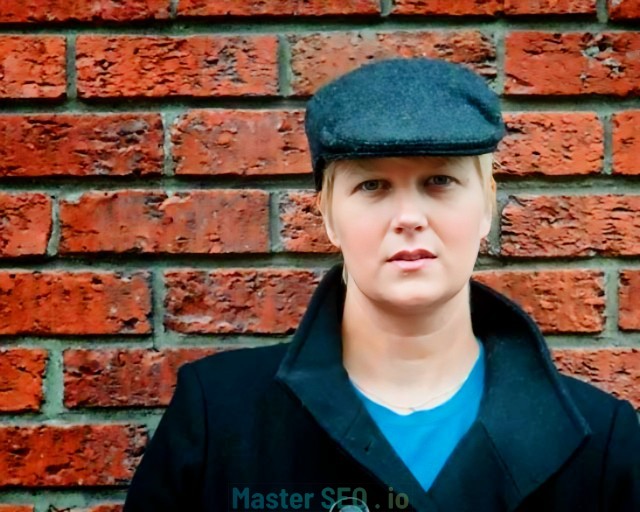Hey there, fellow marketers! If you’re in the SEO game, you know it’s not just about getting websites to the top of search results; it’s also about convincing potential clients that your agency is needed. Consider your SEO proposal the first step in building a successful partnership. I’ve had the privilege of reviewing countless proposals from agencies and consultants during my time at Nordstrom, Groupon, and GitHub, as well as consulting for giants like Microsoft and startups like BlueCrew. Today, I’ll dive into the art of crafting SEO proposals that not only win clients, but also set the stage for long-term success.
Embarking on the art of SEO Proposal genius
As I guide you through this comprehensive journey, we’ll delve into the intricate process of crafting compelling SEO proposals through three key sections. Let’s kick things off with a powerful introduction, urging you to showcase your unique expertise and proven success, establishing credibility and genuine enthusiasm for your client’s SEO goals. Moving forward, I’ll emphasize the significance of client-specific insights, encouraging you to conduct a “light” site audit using tools like Semrush to uncover improvement opportunities, reinforcing your commitment to tailored solutions. I’ll then direct your attention to a client-centric approach, summarizing essential questions that delve into expectations, ideal customer profiles, competitor analysis, and keyword strategies. These insights form the bedrock for your personalized and effective proposal. Together, these sections provide a holistic understanding of the artistry of mastering the SEO proposal process.
Section 1
Introduction & Summary
Every great story needs a captivating beginning, and your SEO proposal is no different. Start by introducing your agency, showcasing your expertise in on-page, off-page, or both. Share why your agency is uniquely qualified for the client’s needs, backed by a track record of proven success. Remember, your goal is to build credibility and express genuine enthusiasm for helping clients achieve their SEO goals. Provide clear contact information, making it easy for clients to reach out with questions or concerns.
Section 2
Client-Specific Insights
Show your commitment to understanding the client’s unique needs with a “light” site audit. Utilize tools like Semrush for basic keyword research, competitive gap analysis, and backlink analysis. Uncover improvement opportunities and present them in an easily digestible format. Consider adding interactive elements or utilizing historical sales data to identify profitable opportunities. Providing these insights demonstrates your agency’s dedication to tailored solutions.
Section 3
Client Questions Summary
Before diving into proposal creation, thoroughly understand your client’s goals.
Ask questions like:
- What are your expectations from SEO?
- Can you describe your ideal customer and their pain points?
- Who are your top competitors, and which websites do you consider fierce competition?
- What keywords do you think prospects should use when searching for your business?
- What’s your history with SEO services, including previous implementations?
Section 4
Proposal Creation Steps Now, let’s get into the nitty-gritty of crafting your proposal.
- Start with a Killer Discovery Call:
- Gather information about the client’s business goals, challenges, and target audience.
- Tailor the proposal to address specific needs and challenges.
- Personalize Your Proposal:
- Research the client’s business, industry, and competitors.
- Craft a client-tailored strategy proposal based on gathered information.
- Use a Free SEO Proposal Template:
- Save time by using a template, but customize it for each client.
- Templates save time and provide consistency and professionalism to your SEO proposals.
- Include Appealing Design Elements:
- Use visuals such as images, graphs, charts, and branding elements to enhance the proposal’s visual appeal.
- Strike a balance between design and content to communicate key points effectively.
- Demonstrate your success:
- Use case studies, testimonials, and social proof to establish credibility.
- Showcase relevant success stories and testimonials to highlight proven track records.
- Write winning proposals:
- Build trust and stand out effectively in competition.
- Win over potential clients with a well-thought-out proposal approach.
- Steps to consider:
- Develop an SEO proposal template for efficient customization.
- Highlight prospect pain points and convey understanding in the Executive Summary.
- Detail specific SEO services, past work examples, and achievements.
- Set a realistic timeline for different SEO tactics.
- Present pricing options and different packages.
- Include a “Terms and Conditions” section.
- Communicate the next steps for the client in a clear manner.
- Send out the proposal promptly.
- Follow-up with the client in the first week and every 2-3 weeks if they don’t respond quickly.
In the competitive world of digital marketing, a well-crafted SEO proposal can make all the difference. Personalization, clarity, and a focus on client success are key elements to include in every proposal. Remember, it’s not just about presenting technical details – it’s about telling a compelling story that convinces clients you’re the partner they need for SEO success.
So, is a detailed proposal a key to winning clients, or does it risk overwhelming them with technicalities?
The answer lies in finding the right balance – providing enough detail to showcase your expertise while ensuring the client can easily understand your value. For a more in-depth guide on crafting winning SEO proposals, check out this insightful article from SEMrush: How to Create a Successful SEO Proposal (+ Free Template!).
Craft your SEO proposals with care, and watch your agency or consultancy stand out in the competitive landscape.
Happy crafting!

Jenn Mathews, known as the SEOGoddess, is an esteemed expert in Enterprise SEO with over 20 years of experience. She has held key positions at organizations like GitHub, Groupon, and Nordstrom, where she has showcased her expertise in technical SEO, strategic development, and championing SEO within large enterprises. Jenn now shares her knowledge through mentoring, writing for Search Engine Journal (SEJ), Search Engine Land (SEL) and speaking engagements.





